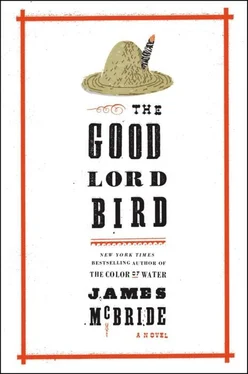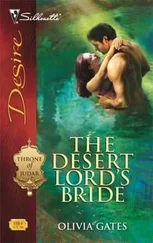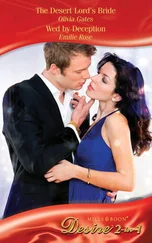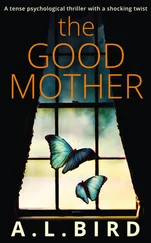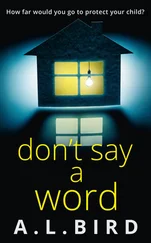“Morning,” I said.
She stopped her raking and stared at me a long time. Finally she blurted out, “Morning.”
It occurred to me then that she knowed I was a boy. Some colored women just had my number. But this was during bondage time. And when you in bondage, you is drowning, in a manner of speaking. You no more pay attention to the getup of the feller next to you than you do the size of his shoes if he got any, for both of you is drowning in the same river. Unless that feller is tossing you a rope to pull you ashore, his shoes ain’t much of a bother. I reckon that’s why few colored women I come across didn’t scratch at me too much. They had their own problems. Anyway, there weren’t nothing to be done ’bout it then nohow. I had an assignment. And until I figured out the lay of the land, I couldn’t run off no place. I was spying for the Old Man and I was looking out for my own self, too.
“I don’t know where I am,” I said.
“You are where you is,” she said.
“I’m just looking to get the lay of the land.”
“It lay before you,” she said.
We wasn’t getting nowhere, so I said, “I’m wondering if you knowed anybody who wants to know their letters.”
A nervous look shot across her face. She glanced over her shoulder at the big house, and kept that rake working.
“Why would somebody want to learn how to do that? Niggers got no cause to read.”
“Some do,” I said.
“I don’t know nothing ’bout that,” she said, still working that rake.
“Well, miss, I’m looking for a job.”
“Learning how to read? That ain’t no job. That’s trouble.”
“I knows how to read. I’m looking to teach someone else how to read. For money.”
She didn’t say another blooming word. She lifted that rake off the ground and showed me the back of her head. She plain walked off.
I didn’t wait. I got outta sight. Jumped into the thickets right then and there, set tight, thinking she’d gone into the house to squeal to the overseer boss or, even worse, her master. I waited a few minutes, and just as I was ’bout to light out, a coach wagon driven by four huge horses dashed from the back of the house and drove hard toward the gate. That thing was movin’. Up front was a Negro driver, dressed in a fine coach jacket, a top hat, and white gloves. The wagon busted through the front gate and the Negro halted it on a dime just outside the gate where I was.
He hopped down and looked around into the thickets. Looked right at ’bout where I was. I knowed he couldn’t see me, for the foliage was thick and I crouched low. “Anybody there?” he asked.
“Ain’t nobody here but us chickens,” I said.
“C’mon out here,” he snapped. “I seen you from the window.”
I done like he said. He was a thick-sprouted, broad-chested man. Close up, he looked even more splendid in tails and coachman’s costume than he did from afar. His shoulders was broad, and though he was short, his face was bright and sharp, and his gloves shone in the afternoon sun. He stared at me, frowning. “The Blacksmith send you?”
“Who?”
“The Blacksmith.”
“Don’t know no Blacksmith.”
“What’s the word?”
“I can’t think of none.”
“What song you singing, then? ‘We Can Break Bread Together’? That’s the song, ain’t it?”
“Got no song. I only know them Dixie songs like ‘Old Coon Callaway Come On Home.’”
He looked at me, puzzled. “What is wrong with you?”
“Nothing.”
“You on the gospel train?”
“The what?”
“The railroad.”
“What railroad?”
He glanced behind him at the house. “You run off? You a runaway?”
“No. Not yet. Not exactly.”
“Them’s three answers, child,” he snapped. “Which of ’em is it?”
“Pick any one you want, sir.”
“I ain’t got time for fooling. State your business quick. You in thick lard already, out here prowling the Colonel Washington’s road without permission. You bet’ not be here when he comes back. I got to fetch him in town in thirty minutes.”
“Would that town be Harpers Ferry?”
He pointed down the mountain at the town. “Do that look like Philadelphia down there, child? Course that’s Harpers Ferry. Every day of the week. Where else would it be?”
“Well, I come to warn you,” I said. “Something’s ’bout to kick off there.”
“Something’s always ’bout to kick off someplace.”
“I mean with the white folks.”
“White folks always got the kick, to everything and everybody. They got the mojo and say-so, too. What else is new? By the way, is you a sissy? You look mighty queer, child.”
I ignored that, for I had work to do. “If I was to tell you that something big’s coming,” I said, “something very big, would you be akin to rousing the hive?”
“Rousing the what?”
“Helping me. Rouse the hive. Gather the colored people up.”
“Girl, you weeding a bad hoe for satisfaction, talking that way. If you was my child, I’d warm your two little cakes with my switch and send you hooting and hollering down that road, just for popping off to my wife ’bout reading. You’ll get every nigger ’round here throwed in hot water talking that way. She ain’t with the cause, y’know.”
“The what?”
“The cause, the gospel train, she ain’t with it. Don’t know nothing ’bout it. Don’t wanna know. Can’t know. Can’t be trusted to know, you get my drift?”
“I don’t know what you’re talking ’bout.”
“G’wan down the road, then, with your foolish self.”
He climbed up on his wagon and readied up to har up his horses.
“I got news. Important news!”
“Big head, big wit. Little head, not a bit. That’s you, child. You got a condition.” He lifted his traces to har up his horses. “Good day.”
“Old John Brown’s coming,” I blurted out.
That got him. Stopped him dead. There weren’t a colored person east of the Mississippi who hadn’t heard of John Brown. Why, he was just a saint. Magic to the colored.
He stared down at me, holding his reins still in his hands. “I ought to whip you something scandalous just for standing there and lying like you is. Spouting dangerous lies, too.”
“I swear ’fore God, he’s coming.”
The Coachman glanced at the house. He swung the wagon ’round and faced it so that the far side of the coach door was blocked from the view of the house. “Git in there and lay down low on the floor. If you pop your head up before I tell you to, I’mma ride you straight to the deputy and say you was a stowaway and let him have you.”
I done as he said. He harred up them horses, and we rode.
* * *
Ten minutes later the wagon halted, and the Coachman climbed down. “Git out,” he said. He said it before the door was halfway open. He was done with me. I climbed out. We was on a mountain road in thick woods, high above Harpers Ferry, on a deserted stretch of trail.
He climbed up on the wagon and pointed behind him. “This here is the road to Chambersburg,” he said. “It’s ’bout twenty miles yonder. Go up there and see Henry Watson. He’s a barber. Tell ’em the Coachman sent you. He’ll tell you what to do next. Stay off the road and in the thickets.”
“But I ain’t a runaway.”
“I don’t know who you is, child, but git gone,” the Coachman said. “You sporting trouble, popping up out of nowhere and running your talking hole full steam ’bout Old John Brown and knowing your letters and all. Old Brown’s dead. One of the greatest helpers to the Negro in the world, deader than yesterday’s love. You ain’t worthy to speak his name, child.”
Читать дальше
